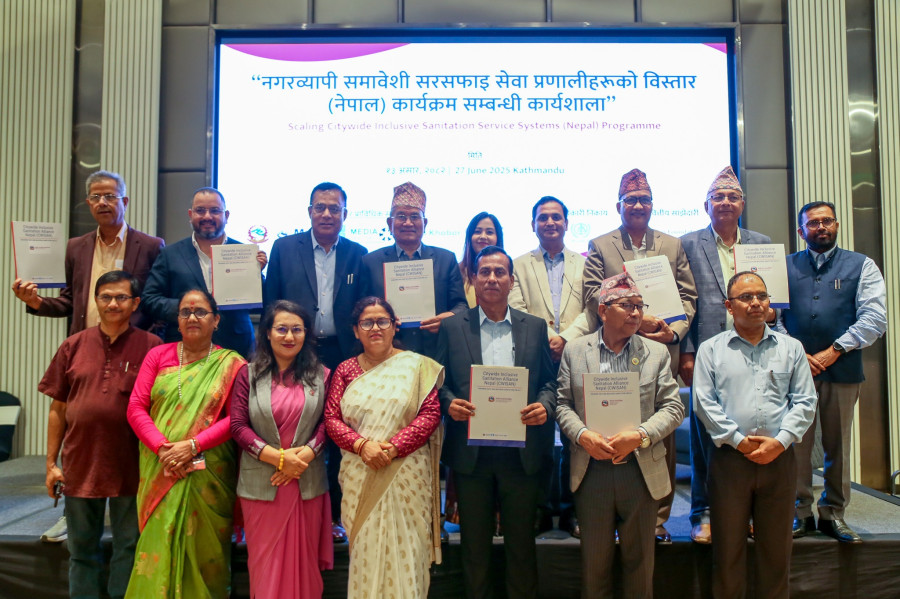National
Local units lead sanitation efforts with support from Gates Foundation and UN-Habitat
Seven municipalities adopt a city-wide inclusive sanitation model to meet the 2030 target.
Post Report
Local units in Nepal have taken the lead in advancing the country’s sanitation goals, with seven municipalities adopting the City-Wide Inclusive Sanitation (CWIS) approach in partnership with the Gates Foundation and UN-Habitat.
The municipalities involved are Mechinagar in Jhapa, Lahan in Siraha, Lalitpur Metropolitan City, Gorkha, Ghorahi Sub-metropolitan City, Sharada Municipality in Salyan, and Godawari Municipality in Kailali. Officials said the initiative aims to ensure safe, inclusive, and sustainable sanitation services for all citizens by 2030.
Chiribabu Maharjan, mayor of Lalitpur Metropolitan City, said sanitation remains a priority for his city. “I am committed to ensuring safe and sustainable sanitation in the city,” Maharjan said.
The municipalities are implementing a comprehensive framework that includes developing policies, structures, and programmes to strengthen sanitation systems. Three months ago, a memorandum of understanding was signed between the municipalities and the Municipal Association of Nepal to ensure coordinated action and long-term support for the initiative.
Sudha Shrestha, National WASH Professional Officer at UN-Habitat Nepal, underlined the importance of fecal sludge management, saying inclusivity must remain central to sanitation efforts. “No one should be left behind in the pursuit of improved sanitation services,” Shrestha said.
Bhim Dhungana, president of the Municipal Association of Nepal, announced the launch of a nationwide campaign covering all 293 municipalities to promote safe and sustainable sanitation.
While the government has introduced the WASH Act and regulations to empower local governments, experts said stronger involvement from provincial authorities and clarity in federal policies remain essential. Public awareness and community engagement will also be critical to success, they said.
Nepal was declared open defecation-free in 2019, but challenges persist. According to the Ministry of Water Supply, about five percent of the population still lacks access to basic toilet facilities, and 89 percent of fecal sludge remains untreated, posing risks to public health and the environment.
Officials and experts said a collective effort—from households maintaining access to toilets to municipalities managing sewage treatment plants—will be needed to achieve safe and sustainable sanitation nationwide.




 9.89°C Kathmandu
9.89°C Kathmandu













